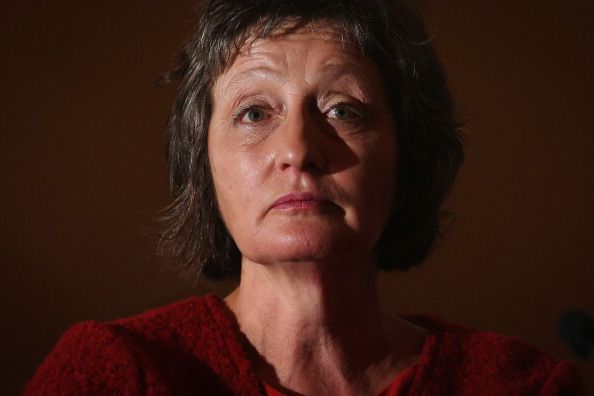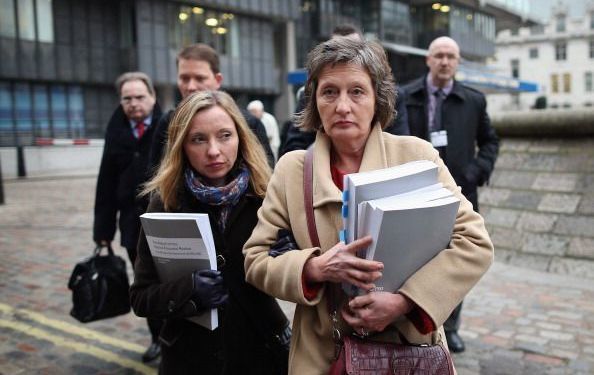The United Kingdom Supreme Court has ruled that the investigation into the murder of human rights lawyer Pat Finucane was not an effective investigation but the court left it to the British government to decide whether a new investigation should take place.
The legal ruling in London this week has put the spotlight on shocking allegations of collusion between British security forces and loyalist death squads surrounding one of the most notorious murders of the Troubles in Northern Ireland.
The Supreme Court ruling in relation to the murder of Belfast solicitor Pat Finucane follows a 30-year campaign for justice by his family and led to renewed calls for a full public inquiry into the atrocity to take place.
Finucane (39) was shot 14 times while having Sunday lunch with his wife Geraldine - who was shot once but survived - and three young children at his family home in February 1989. Two masked gunmen attacked them in their home.
The ruling found that an “effective investigation” into the murder has never been conducted by the British authorities; even though then Prime Minister David Cameron admitted “shocking levels of state collusion” when issuing a full apology to the family in December 2012.
Read more: Attempt to silence Northern Irish journalists causes outrage
Amnesty International in Northern Ireland has said the Supreme Court decision should bring an end to the “30 years of shameful failure” by the Government to deliver the full truth about state involvement in the killing.
They have called for a public inquiry without further delay.
“It is shameful that Patrick Finucane’s widow Geraldine has had to fight for 30 years, and all the way to the Supreme Court, to ensure the truth will be brought to light about the murder of her husband,” said Patrick Corrigan, Amnesty International’s Northern Ireland Programme Director.
“The murder of a lawyer in the UK, with the state actively colluding in that murder, is one of the darkest chapters of our recent history. This decision should bring to an end 30 years of shameful failure by the UK Government to deliver the public inquiry which they promised long ago.”
Finucane was one of the most high-profile human rights lawyers in Northern Ireland at the time and the killing by the loyalist murder gang sent shock waves across Ireland.
Read more: Agent 6137 and the murder of Pat Finucane

Pat Finucane.
The murder was mired in controversy from the beginning and his family has been calling for justice, and a full public inquiry, for three decades.
They have also never received an explanation as to why a British Minister had spoken publicly about solicitors being “sympathetic” to the cause of the Irish Republican Army (IRA) shortly before the murder.
A number of television documentaries have unearthed allegations from loyalist gunmen that members of the police service had authorized the killing. Finucane had defended some high-profile Republicans, including hunger striker Bobby Sands, and the Ulster Defence Association / Ulster Freedom Fighters claimed responsibility for the shooting.
“It was a deliberate decision to kill him, to silence other lawyers and to prevent them from doing that type of work,” said his son John, on the occasion of Finucane’s 30th anniversary two weeks ago.
The Taoiseach, Leo Varadkar, pointed out this week that both the British and Irish Governments had made public commitments regarding a full public inquiry as far back as 2001.

Pat Finucane's Family. Image: RollingNews.ie.
“I have met with the Finucane family in recent months to confirm the Government’s ongoing support for their search for truth and justice. The Department of Foreign Affairs and Trade is in ongoing contact with the family at this time,” said Varadkar.
The British court ruled that Geraldine Finucane had been given “an unequivocal undertaking” to hold a public inquiry, but that a “change of heart on the part of the government” was made in good faith.
John Finucane said there were many other families across Northern Ireland who deserved full accountability from the British authorities.
“This case goes to the heart of the British establishment and the deaths of so many people. The question now is whether Downing Street will do the right thing,” he said.
It now remains to be seen what kind of investigation the current British Government will conduct into the murder.
“We recognise the suffering of Mrs. Finucane caused by the appalling murder of her husband. In 2012 the then prime minister apologised for the collusion that took place, which should never have happened. In relation to the supreme court we are considering that judgment,” said a spokesperson for British Prime Minister Theresa May.
Read more: MI5 plot to "shoot up" a Catholic grade school during The Troubles revealed

Geraldine Finucane speaks during a press conference at Methodist Central Hall on December 12, 2012, in London, England. (Photo by Dan Kitwood/Getty Images)
In 2011, the British Government ordered a review of the available evidence by UN war crimes prosecutor Sir Desmond de Silva QC.
His report found “shocking” levels of state collusion involving the British Army, the Royal Ulster Constabulary (RUC), and security service MI5.
The de Silva report identified a number of ways in which the British state and its agents colluded in the Finucane killing.
These included leaking information to loyalist terrorists, failing to act on information that Finucane’s life was in danger, playing “key roles” in the actual killing; and refusing to investigate, arrest, or prosecute operatives from the Ulster Defence Association (UDA), the largest loyalist paramilitary group in Northern Ireland.
Seven years on from the publication of that report, and 30 years after the killing, the family believes the Supreme Court decision has brought them a little closer to justice and the truth this week.
Ciaran Tierney won the Irish Current Affairs and Politics Blog of the Year award at the Tramline, Dublin, in October 2018. Find him on Facebook or Twitter here. Visit his website here - CiaranTierney.com. A former newspaper journalist, he is seeking new opportunities in a digital world.
This article was submitted to the IrishCentral contributors network by a member of the global Irish community. To become an IrishCentral contributor click here.




Comments